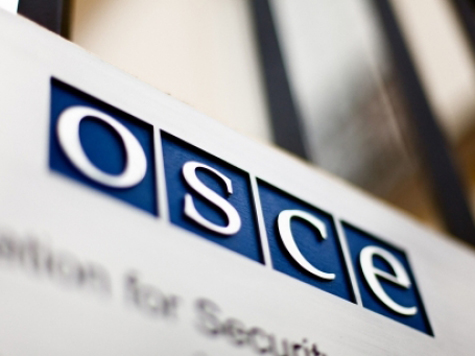An international organization that will send election observers to monitor U.S. elections in November represents some of the world’s most undemocratic, politically repressive regimes.
The Organization for Security and Cooperation in Europe, which cooperates with the United Nations under Chapter VIII of the latter’s charter, announced recently that it will dispatch election observers to the United States to “assess these elections for compliance with international obligations and standards for democratic elections.”
But a host of OSCE member states are woefully non-compliant with those same obligations and standards. According to rankings from the group Freedom House, which rates countries according to their respect for political freedoms and civil liberties, numerous OSCE members are not only undemocratic but are some of the most flagrant violators of the principles of electoral democracy.
Below are Freedom House assessments of democratic rights in some of the more egregious OSCE members. (OSCE itself has noted the undemocratic nature of some of these regimes.)
Armenia is not an electoral democracy… The 2008 presidential election was seriously undermined by problems with the vote count, a biased and restricted media environment, and the abuse of administrative resources in favor of ruling party candidate Serzh Sarkisian. The Yerevan municipal elections held in May 2009 also suffered from significant violations, though international observers claimed that the fraud did not jeopardize the overall legitimacy of the results. In 2011, local elections were held in several districts, but the polls were boycotted by the opposition and not observed by international monitors.
Azerbaijan is not an electoral democracy… Elections since the early 1990s have been considered neither free nor fair by international observers. As with previous votes, the 2010 parliamentary balloting featured the abuse of state administrative resources, including news media, to ensure the dominance of the YAP. The OSCE also cited voter intimidation and the improper disqualification of some opposition candidates.
Belarus is not an electoral democracy. Serious and widespread irregularities have marred all recent elections, including the December 2010 presidential poll… Opposition parties have no representation in the National Assembly, while pro-presidential parties serve only superficial functions. Young members of opposition parties report being deliberately drafted into the military; soldiers are banned from party membership. Amendments to the electoral law adopted in 2009 give parties more opportunities to campaign but do not provide for a transparent vote count. Local elections in April 2010 produced unusually large returns for proregime candidates.
Kazakhstan is not an electoral democracy. The constitution grants the president considerable control over the legislature, the judiciary, and local governments. Under the current constitutional rules, President Nursultan Nazarbayev may serve an indefinite number of five-year terms… The country’s broader law on political parties prohibits parties based on ethnic origin, religion, or gender.
Russia is not an electoral democracy. The deeply flawed 2011 Duma elections were marked by a “convergence of the state and the governing party, limited political competition and a lack of fairness,” according to the OSCE, but many voters used them to express a protest against the status quo. In the 2008 presidential election, state dominance of the media was on full display, debate was absent, and incumbent Vladimir Putin was able to pass the office to his handpicked successor, Dmitry Medvedev.
Tajikistan is not an electoral democracy… Elections are neither free nor fair. Patronage networks and regional affiliations are central to political life, with officials from the president’s native Kulyob region dominant in government. In 2009, [President Emomali] Rahmon’s daughter Ozoda was appointed deputy foreign minister, while by 2011 his son Rustam had attained the rank of major and been appointed to a newly created post in the Customs Agency in charge of fighting contraband, in addition to holding a significant number of other positions.
Turkmenistan is not an electoral democracy. The late president Saparmurat Niyazov wielded almost absolute power until his death. None of the country’s elections–including the February 2007 vote that gave Niyazov’s successor, Gurbanguly Berdymukhammedov, a five-year term in office–have been free or fair. Berdymukhammedov has maintained all the means and patterns of repression established by Niyazov.
Only four political parties, all progovernment, are currently registered, and no genuine opposition parties function legally. A 2007 law intended to expand the role of registered parties had no real effect on the moribund political arena. Unregistered opposition groups function primarily in exile. In October 2011, the exiled opposition group Birdamlik attempted to hold a national event to bring complaints against local officials in several cities. Local activists faced harassment from the authorities, and leaders of the campaign reported that neighborhood committee (mahalla) officials threatened residents who wanted to participate.
To the extent that more election observers ensure that Americans’ democratic rights are respected, more observers can hardly be a bad thing. Yet the hypocrisy in a group representing some of the world’s worst offenders against democracy ensuring the sanctity of elections in the United States is inescapable.

COMMENTS
Please let us know if you're having issues with commenting.